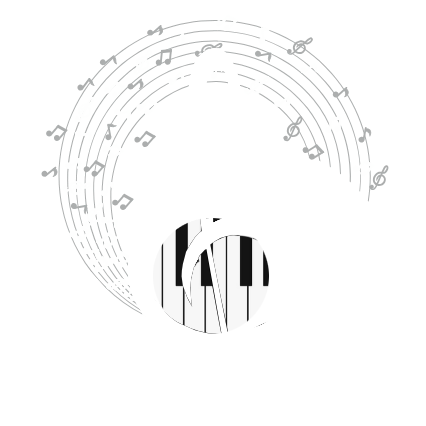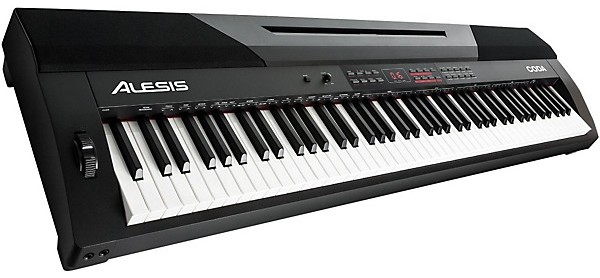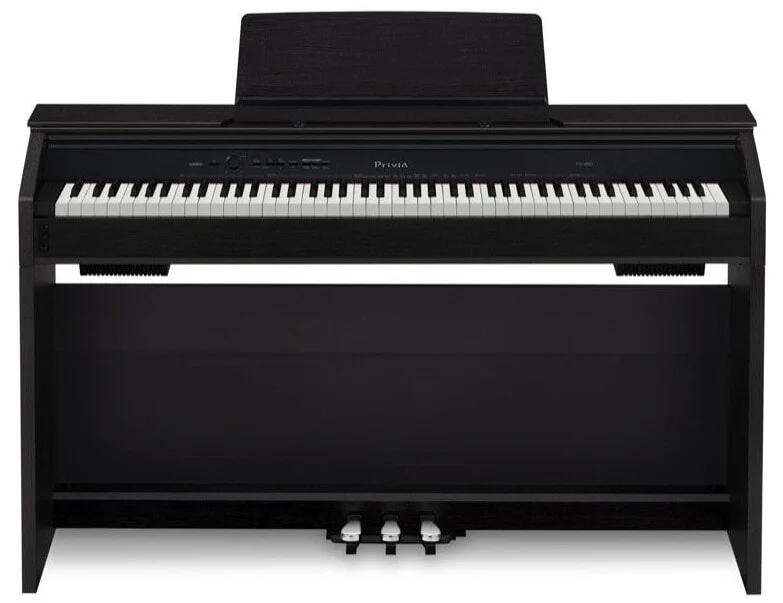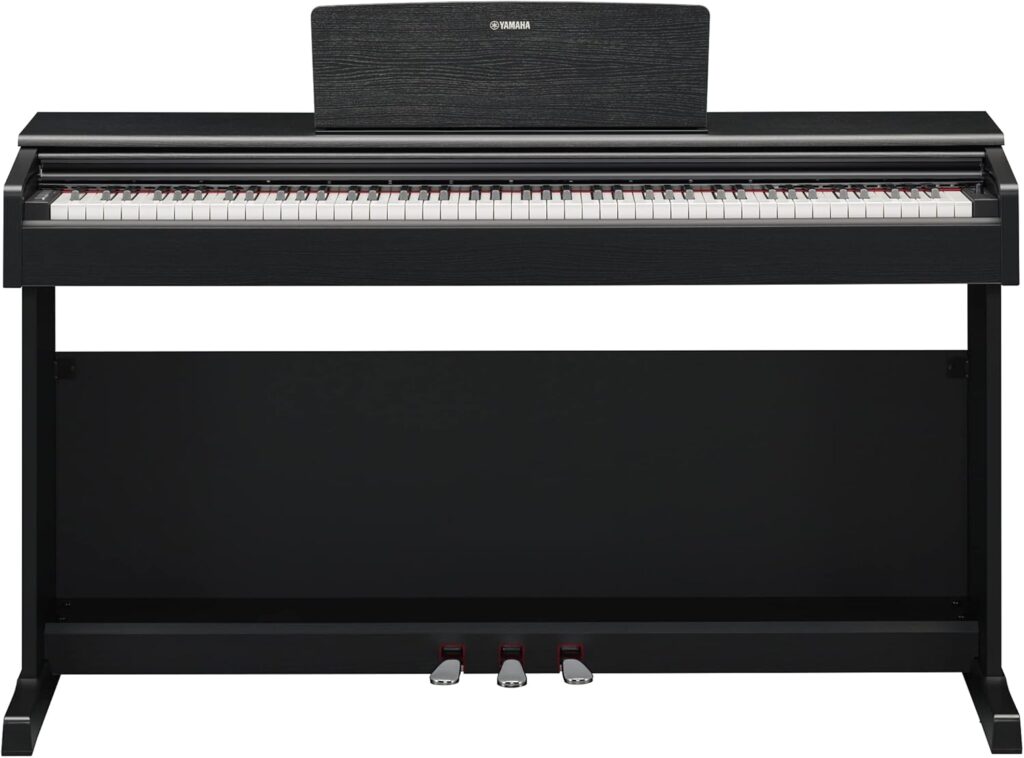Thinking about buying your first digital piano? Knowing how to choose a digital piano can feel overwhelming with so many options available. From weighted keys to sound engines and connectivity, the right choice depends on your goals—whether you’re a beginner, hobbyist, or performer.
Define Your Playing Goals Before You Shop
When learning how to choose a digital piano, your personal goals matter most. Are you practicing casually, composing music, or preparing for live performances?
Are You a Beginner, Hobbyist, or Performer?
Before diving into models and specs, figure out what you actually need. Are you just starting out? Are you composing music? Do you plan to play live? Your goals will help narrow down features like key action, sound engine, and connectivity.
Casual Practice or Serious Training?
If you’re learning classical music or preparing for exams, key feel and pedal support matter more. If you’re dabbling for fun, portability or built-in sounds might take priority.
Understand the Different Types of Digital Pianos
Knowing the categories is key when choosing a digital piano. Console models are great for home use, stage pianos suit gigging musicians, and digital grands deliver premium aesthetics.
Console-Style Digital Pianos
These mimic the look and feel of an upright piano. They’re designed for home use, offering full 88-key ranges, weighted keys, and solid cabinetry. Great for families and serious learners.
Portable Stage Pianos
Lighter and gig-ready, these models are easy to carry and often built with professional-grade sounds. Ideal for musicians who need flexibility and mobility.
Digital Grand Pianos
These offer high-end aesthetics and top-tier sound engines, replicating the look of a baby grand in a digital format. Expect luxury pricing—and stunning living room appeal.
Focus on the Key Action First
If you’re learning how to choose the right digital piano, key feel is the #1 factor. Weighted keys with hammer action simulate acoustic pianos, while semi-weighted keys offer lighter playability.
Why Key Feel Is a Game-Changer
How the keys feel under your fingers will determine how much you enjoy playing. Weighted and graded hammer action keys feel closest to an acoustic piano. Semi-weighted or synth-action keys are lighter but less expressive.
Graded Hammer Action for Realism
Graded hammer action means the lower keys feel heavier than the higher ones—just like a real acoustic. It’s ideal for classical players and those developing strong technique.
Check the Sound Engine and Voices
How Realistic Are the Piano Tones?
Not all digital pianos sound the same. Look for high-quality samples from real grand pianos, recorded with multiple velocity layers and sympathetic resonance.
Do You Need More Than Piano Sounds?
If you’re into composing or modern genres, look for models that include electric pianos, organs, strings, synths, and drum kits. Many digital pianos include hundreds of voices to explore.
Don’t Ignore Pedals and Polyphony
Sustain Pedal: Essential for Any Style
Most digital pianos come with at least one pedal. For realism, choose models that support three-pedal setups (sustain, soft, sostenuto), especially if you’re practicing classical music.
Polyphony: The More, the Better
Polyphony refers to how many notes the piano can play at once. 64-note is fine for beginners, but 128-note or higher is better for complex pieces or layered sounds.
Connectivity and Features That Make a Difference
Headphones, USB, Bluetooth, and More
Look for headphone jacks (a must for quiet practice), USB-to-host ports for computer connection, and Bluetooth MIDI for wireless convenience.
Built-In Recording and Learning Tools
Many models include metronomes, built-in lessons, dual mode (split keyboard), and recording functions—especially useful for students and home practice.
Size, Weight, and Portability Considerations
Where Will You Keep or Move It?
If it’s staying in one place, weight may not matter. But if you’ll be moving it around, look for lighter models with easy setup and breakdown.
Don’t Forget the Stand and Bench
Some models are sold as keyboard-only. Others come with a matching stand and seat. Be sure to check what’s included.
Set Your Budget and Compare Smartly
How Much Should You Spend?
For beginners, $300–$700 can get you a solid digital piano with weighted keys. Serious players may want to spend $1,000+ for upgraded sound engines and key action.
Watch for Hidden Costs
Stands, pedals, benches, and even good headphones can add up. Factor those into your budget from the start.
Read Reviews and Try Before You Buy
Trust Real Player Feedback
Customer reviews and YouTube demos can reveal a lot about sound quality, feel, and durability.
Try It in Person If Possible
If you can, go to a music store and play a few models. The right digital piano should feel right immediately—it should invite you to play.
Conclusion: Choose the Piano That Matches Your Lifestyle
The best digital piano for you is the one that meets your musical needs, fits your space, and feels good to play. Whether you’re starting from scratch or returning after years away, investing in the right instrument can make all the difference. Focus on how it sounds, how it feels, and how well it fits your life—not just the price tag.
FAQs
- What’s the most important feature to look for in a digital piano?
Key action is #1. How the keys feel determines how realistic and enjoyable your playing experience will be. - Do all digital pianos have weighted keys?
No. Some use semi-weighted or synth-action keys, especially in lower-end or portable models. Fully weighted keys offer the best realism. - How many keys do I really need?
88 keys are ideal, but beginners can start with 61 or 76. Just keep in mind you may outgrow smaller ranges. - Can I connect a digital piano to my computer or tablet?
Yes—many models include USB or Bluetooth MIDI, making it easy to connect to recording software or learning apps. - Are digital pianos good enough for advanced players?
Absolutely. High-end digital pianos like Yamaha Clavinova or Roland HP series offer incredible realism suitable for serious performance and practice.



